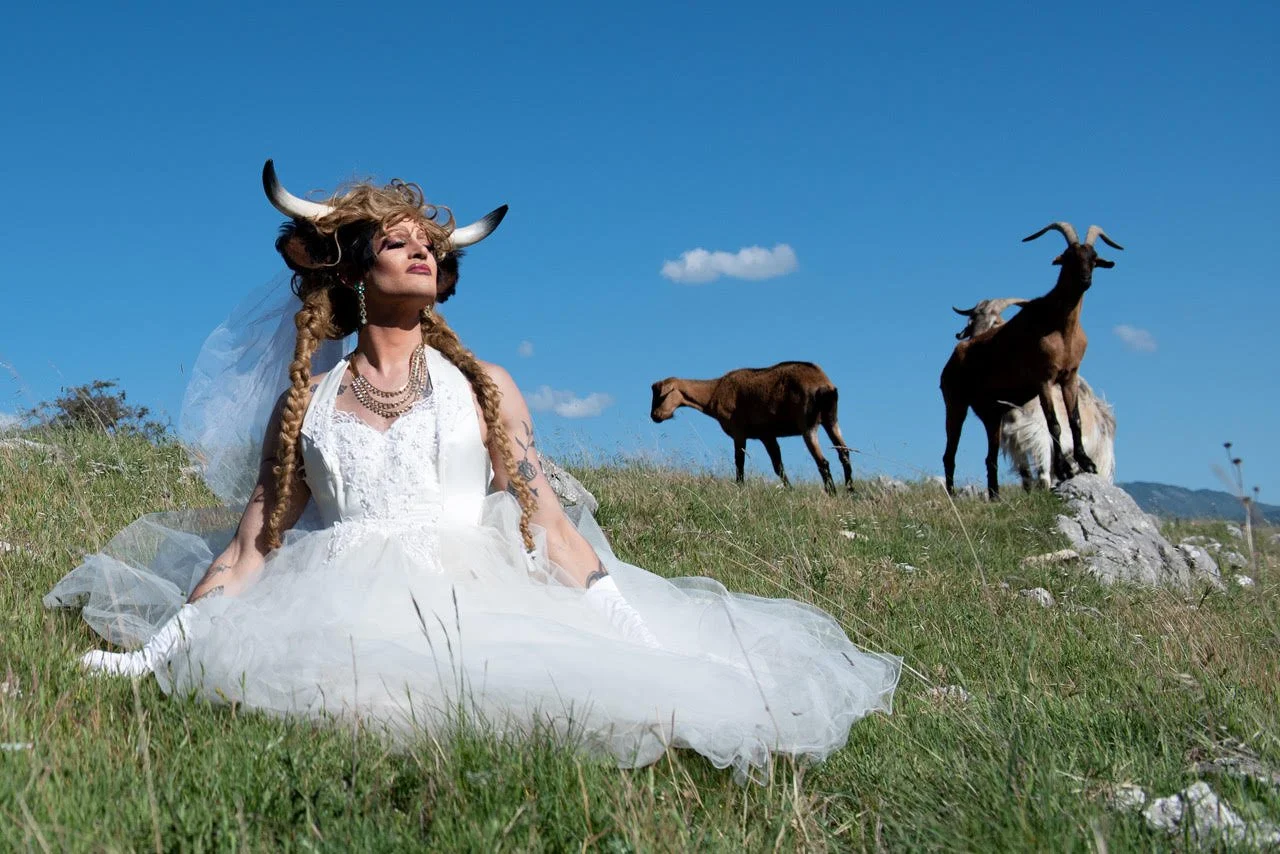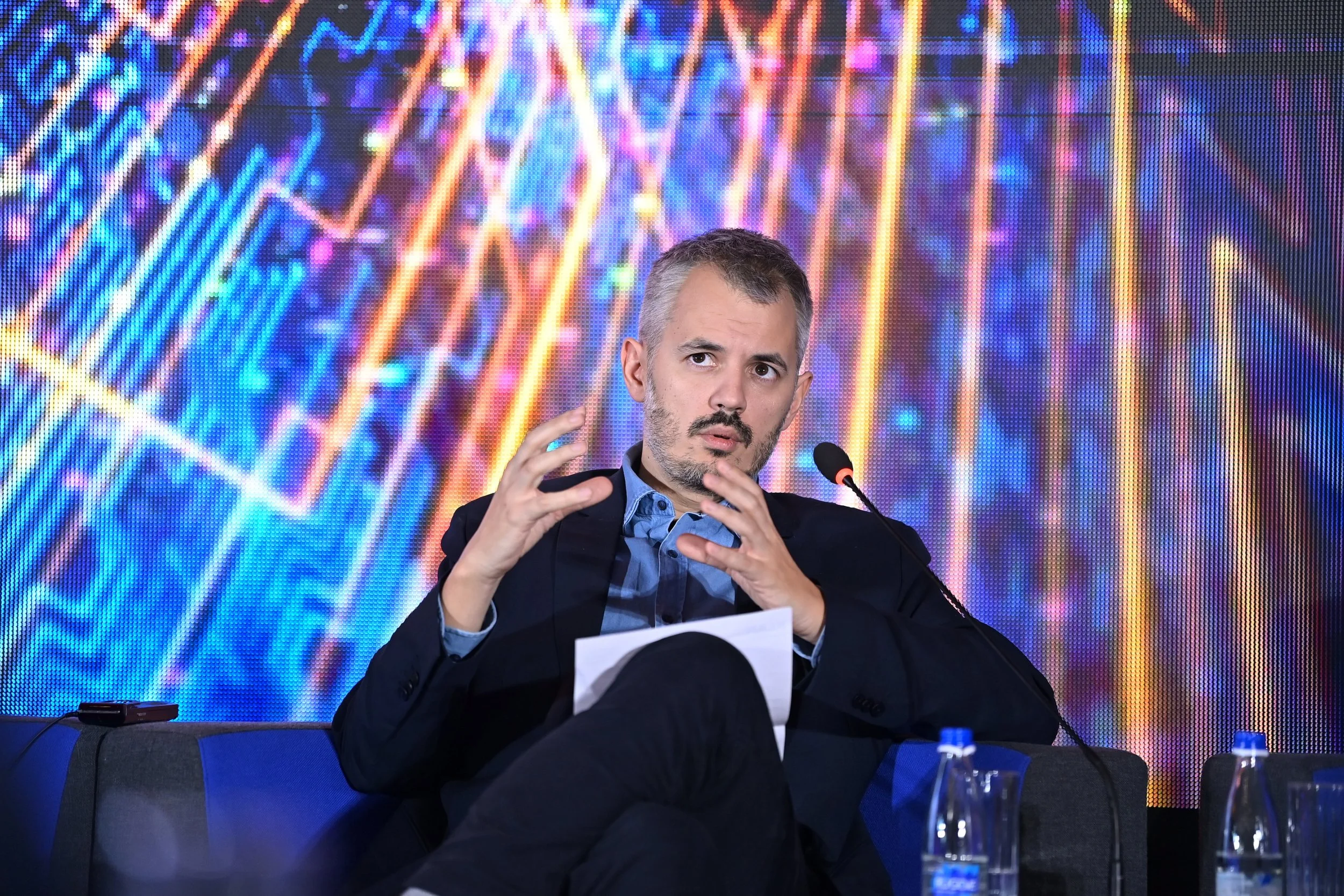Rockets, recipes and Le Pen(itentiary)
Marine Le Pen has been banned from running for the French presidency after this week's bombshell court ruling finding her guilty in a huge embezzlement case. But does she have any chance of a comeback? And could the far-right win the presidency without her? This week we're discussing the earthquake in French politics, as well as Europe's space ambitions. Plus, a delightful interview with Greek podcaster and hungry man Thom Ntinas, about what ancient Europeans ate.
Should Canada join the EU?
Europe and Canada have a lot in common, from their headaches over Donald Trump to a shared belief in welfare states. If Australia can be a part of Eurovision, is there anything stopping us from welcoming our Canadian friends into the EU?! This week we talk to Stanley Pignal, The Economist's semi-Canadian Brussels bureau chief, about what would be in it for both sides. We're also looking at the escalating political crisis in Bosnia, and the places in Europe where you're likely to live the longest.
The world needs more drag cows
In an otherwise miserable week, this podcast is delighted to bring you a joyful interview with a drag cow. At least, an interview with the person behind the cow: the Swiss artist, performer and animal rights activist Daniel Hellmann. We chat to Daniel about why he decided to channel his campaigning side into something so wonderfully silly. We're also talking about a trigger-happy Croatian politician and Ursula von der Leyen's return from hospital.
The manosphere, the 'TikTok messiah', and 132 hamsters
We've got a heady mix of Romanian politics, online misogyny and animal-based chaos for you this week. Friend of the show Andrei Popoviciu joins us to explain why his dad and many other voters backed the TikTok-fuelled campaign of far-right Romanian presidential candidate Călin Georgescu. And we ring up three young people from Greece, Ireland and Lithuania to ask: what's it like being part of a generation that's increasingly divided over whether feminism is a good thing? Plus, hamsters. Lots of hamsters.
Has Donald Tusk fixed Poland?
It's been a year since Donald Tusk took power, filling liberals and progressives in Poland with hope as eight years of rightwing populist rule came to an end. But how much has Tusk's coalition really improved things? This week Dominika Lasota of Wschód, an increasingly influential force that has been holding Tusk's government to account, joins us to discuss what still needs to change. We're also talking about Ursula von der Leyen's new squad, and why you might no longer need your passport for trips to Romania or Bulgaria.
Spain’s floods, Moldova’s election, and what the kids of Europe are watching
The world may be transfixed by the US election results, but this was a huge week for news on this side of the Atlantic too. This week we're trying to make sense of the cataclysmic floods in Spain, and talking about another presidential election with major consequences — the one in Moldova. Plus, a much-needed palate-cleanser: we're delving into a fascinating report into what European children are watching, and what grown-up film producers can do to make better stuff for kids.
What do the European Union and Barbie have in common?
Are European leaders living in a Barbie-like dreamworld? This week, the idealised fantasy of the EU versus its awkward reality. Far from being a continent of grateful europhiles, a lot of people feel apathetic about the European project at best. Paweł Zerka joins us to discuss why non-white, young and Eastern Europeans feel especially left out of the EU, and what we can do to fix this.
Mussolini, testicles, and the Schengen zone
Last week we brought you geopolitics, this week we're bringing you testicles. Why has male contraception remained such an underground idea, despite decades of research? We speak to Paul Labourie, one of a growing number of men (in the francophone world at least) who are turning to DIY contraception devices to take on more of the responsibility in their relationships. We're also talking about the crackdown on Germany's borders and a surprise move by Mussolini's granddaughter.
Swedish authorities say it's fine if you listen to this podcast
We're back from our summer break! Rym Momtaz, the new editor-in-chief of the Strategic Europe blog, is here to catch us up on the main political developments we missed over the summer, from Ukraine to France. We're also talking about Sweden's suggestions for cutting kids' screen time, and a possible crackdown on outrageous concert ticket prices.
Why is European cinema so different from Hollywood?
Fewer expensive car chases, more moody shots and ambiguous endings: movies made in Europe are often very different from those made in the US. But Europe's more arty film output isn't just a product of our culture — it has a lot to do with how the industry is financed. This week, we're asking: why is European cinema the way it is, and should we be trying to change it?
Pigeon murders, the nature restoration law, and Scandinavian family therapy
Enough politics: we’ve got a nature-themed episode for you this week. Producer Katz Laszlo joins Katy to explain how Austria’s environment minister went rogue to save the EU’s hugely important nature restoration law; we’re also talking about the German town that just voted to kill all its pigeons. And in the human world: the podcast that brings Scandinavians together in their own languages. Hilde Sandvik takes us behind the scenes of ‘Norsken, svensken og dansken’, a show described as family therapy for neighbouring nations.
Toxic air and toxic politicians
Last weekend, Parisians voted to triple parking fees for SUVs in a bid to remove some of the city's more polluting vehicles. It's just one of many policy ideas that are being tested out in European cities to clean up the air we breathe — but how bad is the problem really, and can we really fix it? This week we ring up Oliver Lord from the Clean Cities Campaign to find out. We're also talking about the exhausting antics of Viktor Orbán and some juicy Italian art theft allegations.
What actually happens to Europe's recycling?
A lot of us are pretty diligent when it comes to throwing our plastic into the dedicated bin. But how much of that stuff actually gets recycled? This week we're digging into the truth behind Europe's trash with Nico Schmidt, reporter for Investigate Europe. We're also talking about Germany's massive anti-AfD protests, and Saudi sell-out Rafael Nadal.
Influencer fraud, liveable cities and the Israel taboo
We’re kicking off the new year with a heady mix of urban policy, cake-based scandal and political controversy. Find out which European city ranks as the most ‘liveable’ in Good Week, and dive into the fraud case embroiling Italian mega-influencer Chiara Ferragni in Bad Week. And in this week’s interview, hear from historian Quinn Slobodian about the parallel he sees between the current discourse around Israel-Palestine in Germany, and events 50 years ago.
Why is it so hard to fix Kosovo's problems?
Last week, dozens of NATO peacekeepers were injured after violent protests broke out in northern Kosovo. What is going on, and why do Kosovo's problems seem so hard to fix? This week we dig into the deeper context behind the unrest with political analyst Agon Maliqi. We're also talking about why much of Europe is antsy about who's going to be steering the EU next year, and a bizarre dispute in the art world.
The naughty child of NATO?
We've been glued to the Turkish elections over the past week. But what does Recep Tayyip Erdoğan's victory in the first round mean for the country, and for Europe as a whole? This week we ring up political scientist Ahmet Erdi Öztürk to find out. We're also talking about a big boost in Germany's support for Ukraine, a fake tan controversy, and the teeny tiny bridge behind the Mona Lisa.
The plastics law, revisited
A whole bunch of plastic objects are about to become illegal across the European Union: everything from coffee stirrers to straws and cotton buds. As we count down to the big day on July 3, we're revisiting last year's special episode about how the EU is even able to make laws like this for 27 countries. This week we're asking: "How the hell do you make an EU law?"
Why the Black Lives Matter protests are different in Europe
Protests over the death of George Floyd have been spreading on this side of the Atlantic, from Britain to Hungary. This week we're talking about what makes the European anti-racism protests different, with the artist and cultural critic Quinsy Gario. We're also talking about Prague's mysterious poisoned suitcase, and a possible post-COVID rail revolution.
The Great Pull of China
You can blame Dominic for the pun. This week, as tensions between the United States and China reach fever-pitch, we're asking: does Europe need to pick a side? Tom Wan, Research Director in European Politics at the Global Studies Institute in Hong Kong, is on the line to explain what's at stake in Europe's relationship with China.
Guide to a Non-Existent Country
The Italian journalist and travel writer Giovanni Vale is used to writing tourist guidebooks, but usually they're for countries that still exist. We rang him up to ask why he's turned his attention to 'extinguished' countries, starting with the Venetian Republic which sprawled across the Mediterranean for more than a millennium. Also this week: Polish punk and Europe's organic revolution.



















